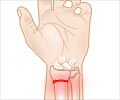
Dr. Matthew Martinez, the cardiologist who heads the health network’s sports cardiology program, said that while heart problems in young people, particularly in athletes, are rare, and players should be aware of the symptoms that could lead to a serious cardiac problem.
“Athletes passing out or getting dizzy when they exercise are indicators something might be wrong. It is not unusual for someone exercising vigorously to be short of breath, but if one’s tolerance and energy seem to be declining after continued workouts, instead of improving, that could be a sign to see a doctor,” Martinez said.
Student athletes should ask parents for help when filling out any health questionnaires that schools or organizations give them. Adults are more likely to be aware of family issues, Martinez said.
Source-Medindia















